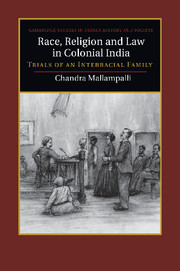Book contents
8 - Choice, Identity, and Law
The Decision of London’s Privy Council
Published online by Cambridge University Press: 05 December 2011
Summary
The Judicial Committee of London’s Privy Council was the final court of appeals for cases originating in the colonies. As such, it heard a wide range of cases arising from many cultural contexts. These encompassed the validity of laws passed within British colonies of settlement, issues of nationality and legal rights associated with persons of different races, the fulfilment of treaties, and civil matters pertaining to marriage, divorce, and inheritance. Deliberations of the Judicial Committee were held in the Council Chamber, a room located at the center of Westminster and overlooking Downing Street. Because of the many legal systems they had to interact with, the Committee required a vast collection of law books, digests, and law reports from various jurisdictions throughout the empire. Given the immense scope of its engagement, it is unclear what the Judicial Committee would bring to light in Charlotte’s case that had not already been considered in the Indian courts. Did Charlotte hope that London’s team would examine issues with greater rigor or fairness, or simply that an English court would be more biased toward the application of English law?
The decree of the Sadr Adalat must have shattered whatever trust Charlotte and Daniel may have had in the Indian courts (Charles was by then deceased). In its adoption of Hindu law as the working framework for the case, it could not have contradicted the earlier decree of the Bellary District Court more. Incensed by the Sadr Adalat’s decree, Charlotte and Daniel directed their attorney, J. D. Mayne, to appeal their case to London’s Judicial Committee. In his letter of appeal, Mayne stated that the decree was wrong, among other things, in “stating that the parties were to be governed by the principles of Hindu law.”
- Type
- Chapter
- Information
- Race, Religion and Law in Colonial IndiaTrials of an Interracial Family, pp. 214 - 240Publisher: Cambridge University PressPrint publication year: 2011



